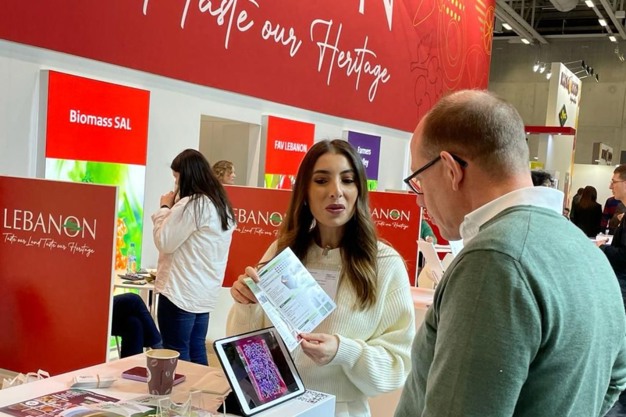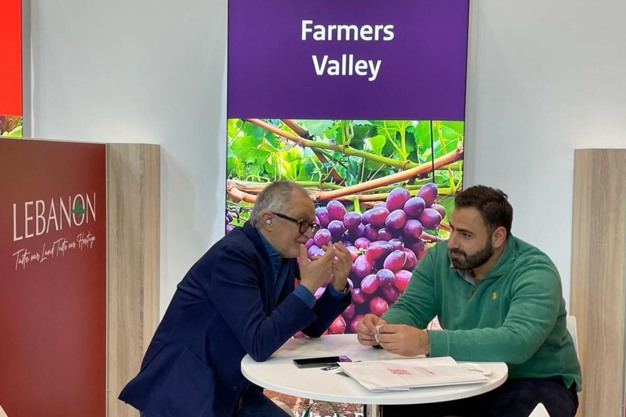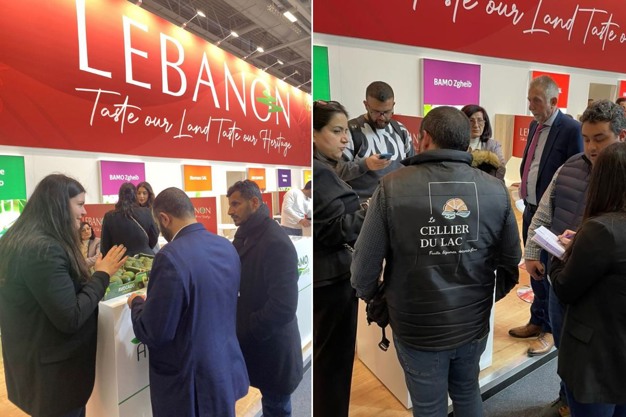A Lebanese delegation of exporters of various fresh produce products will be exhibiting at Fruit Logistica in Berlin, in the Lebanese pavilion set up for the purpose. This is the second time the pavilion has been held in the exhibition, and it is a crucial event for defending Lebanese origin and boosting the country's exports, according to Walid Gaddas, CEO of Stecia International.

Gaddas told FreshPlaza: "Lebanese origin remains relatively undiscovered and deserves greater visibility. Supported by the CBI and the Lebanese Ministry of Economy and Trade, and with the coordination of Stecia International, 11 Lebanese exporters are on a mission to showcase the excellence of Lebanese agriculture at this important event and to break into new markets. We're mainly targeting the European and Gulf markets, where Lebanese fresh produce enjoys a certain notoriety, and where we need to capitalize on Lebanon's assets to improve market share".
The eleven exhibitors cover a wide range of fresh fruit and vegetables that are in high demand in Europe and the Gulf countries, adds Gaddas. "We're talking about winning products that are appreciated and sought-after, such as grapes, avocados, annona, apples, cherries, lettuce, carrots, potatoes, and others. For all products available for export, exhibitors boast highly competitive quality, even superior to Lebanon's traditional competitors, such as North African origins. Quality is pronounced through the gustatory and aesthetic aspects of the products, appealing to consumers and also to the customers we target in the retail trade. For these products, Lebanon benefits from export calendars that differ from those of the competition and lower carbon footprint, as is the case for avocados, and superior fruits. Finally, the country is well positioned geographically, close to the markets we are targeting, which reduces sourcing costs and guarantees product freshness."

Participation in Fruit Logistica, as in other major exhibitions such as Fruit Attraction in Madrid and Adife in Abu Dhabi, is the culmination of a long effort to boost agribusiness in Lebanon. Gaddas explains: "A great deal of work involved matching the quality standards of the destination markets. All our exhibitors have the necessary certifications and are ready to fulfill potential demand. Since we started organizing the Lebanese pavilion just one year ago, many of our exporters have been able to conclude contracts and have already begun supplying new customers, including high-profile clients such as supermarket chains."
Despite benefiting from micro-climates conducive to varied agricultural production, and being spared the drought and climatic hazards that affect its North African competitors, Lebanon remains constrained by higher production costs and by the difficulty of achieving economies of scale, prompting exporters to position themselves on the high-end segment of the market and steer away from commodity products. But Gaddas insists: "That said, if we compare quality, we realize not only the superiority of Lebanese production but also the competitiveness of prices for the target segment. On the other hand, this observation is not systematic and depends on the products, some of which can be exported in large volumes and at very competitive prices."

The Lebanese pavilion at Fruit Logistica, located in hall 22 - D10, will also feature an institutional stand presenting the country's four main chambers of commerce, in addition to other partners. "Lebanese exporters and exhibitors are supported by multidisciplinary players and strong partnerships. At Stecia International, as a private consulting firm and partner of the delegation, our role is to provide technical assistance, advice, and training in the analysis and development of agri-food value chains, as well as matchmaking and market access facilitation for agricultural SMEs," concludes Gaddas.
For more information:
Walid Gaddas
Stecia International
Tel: +21629325343
Email: [email protected]
www.stecia.com
